The Trump administration's firing of Manhattan U. S. Attorney Preet Bharara sent shockwaves through New York, but veterans of the high-profile office expect a longstanding mission of cracking down on political corruption and Wall Street wrongdoing to remain intact.
The Trump administration's firing of Manhattan U.S. Attorney Preet Bharara sent shockwaves through New York, but veterans of the high-profile office expect a longstanding mission of cracking down on political corruption and Wall Street wrongdoing to remain intact.
Staffed with more than one hundred career prosecutors, the Manhattan U.S. Attorney's Office has a long history of being apolitical and pursuing a wide range of investigations into terrorism, public corruption, securities fraud and cyber crime, former prosecutors said.
Lorin Reisner, former head of the office's criminal division from 2012 to 2014, who is now in private practice at law firm Paul Weiss, said the priorities of the office are unlikely to change, regardless of who replaces Bharara.
"Generations of SDNY prosecutors have been told that their job is to do the right thing, for the right reasons, every day, in every case," he said, using the acronym for the office, the Southern District of New York.
Hanging in the balance are ongoing investigations of potential fraud at Valeant Pharmaceuticals International Inc and its ties to a mail-order pharmacy and of two massive data breaches at Yahoo Inc, including one affecting more than one billion user accounts.
The office is also investigating a major cyber heist from the Bank of Bangladesh involving funds which moved through the New York Federal Reserve bank.
Bharara, appointed by President Barack Obama in 2009, lived up to the office's reputation, investigating Republicans and Democrats alike. He has been overseeing a probe into Democratic New York City Mayor Bill de Blasio's fundraising.
"It would be tremendously difficult for any U.S. attorney to come in and politicize that office," said Carrie Cohen, a former prosecutor who worked under Bharara and is now in private practice at Morrison & Foerster.
President Donald Trump has yet to announce a replacement for Bharara or the other remaining 45 U.S. attorneys from the Obama era who were asked to step down on Friday.
U.S. attorneys are political appointees requiring confirmation by the U.S. Senate. They usually leave office when a new president is elected, although some remain for months to help with the transition.
But Bharara's removal from office came as a surprise because Trump had met with him after the election and indicated he would be retained. Bharara refused to resign, prompting his firing on Saturday.
LATITUDE TO ESTABLISH PRIORITIES
Whoever Trump appoints to replace Bharara will likely reflect U.S. Attorney General Jeff Session's priorities, including a desire to crack down on violent crime and less of a focus on civil rights cases.
There is growing speculation among former prosecutors and others in the legal community that Bharara's replacement will be Marc Mukasey, a defense lawyer whose father served as attorney general under Republican President George W. Bush. Mukasey declined to comment on Sunday.
In the short-term, the office will be headed by acting U.S. Attorney Joon Kim. He is a veteran of the office, returning under Bharara in 2013 as a key deputy following an earlier stint from 2000 to 2006. In between, he was a partner at the Cleary Gottlieb Steen & Hamilton law firm.
A spokesman for the office did not immediately respond to a request for comment.
Outside of public corruption, Bharara was perhaps best known for overseeing a wave of cases focused on insider trading. Many of the investigations were already underway when Bharara took office in August 2009. But he became the face of the crackdown, landing on the cover of Time magazine in 2012 with the headline "This man is busting Wall St."
The new U.S. attorney will have some latitude on what to focus on in the future.
"Each U.S. attorney has his own order of priorities and how they see the resources of the office best used and each U.S. attorney also has the right to discontinue an investigation if they feel it's a waste of time," said Ben Brafman, a leading defense lawyer.
Sessions has, however, already signaled a shift away from some Obama administration priorities.
Unlike Bharara and his former bosses in the Obama administration, Sessions advocates trying foreign militants before military commissions instead of in civilian courts.
Bharara had pushed for trials in civilian courts while Sessions has criticized that approach and vouched for the ongoing value of trying foreign defendants before military tribunals.
On civil rights, Norman Siegel, former executive director of the New York Civil Liberties Union, said there was "growing anxiety" about the future of such cases since Bharara's firing.
(This article has not been edited by DNA's editorial team and is auto-generated from an agency feed.)
![submenu-img]() Firing at Salman Khan's house: Shooter identified as Gurugram criminal 'involved in multiple killings', probe begins
Firing at Salman Khan's house: Shooter identified as Gurugram criminal 'involved in multiple killings', probe begins![submenu-img]() Salim Khan breaks silence after firing outside Salman Khan's Mumbai house: 'They want...'
Salim Khan breaks silence after firing outside Salman Khan's Mumbai house: 'They want...'![submenu-img]() India's first TV serial had 5 crore viewers; higher TRP than Naagin, Bigg Boss combined; it's not Ramayan, Mahabharat
India's first TV serial had 5 crore viewers; higher TRP than Naagin, Bigg Boss combined; it's not Ramayan, Mahabharat![submenu-img]() Vellore Lok Sabha constituency: Check polling date, candidates list, past election results
Vellore Lok Sabha constituency: Check polling date, candidates list, past election results![submenu-img]() Meet NEET-UG topper who didn't take admission in AIIMS Delhi despite scoring AIR 1 due to...
Meet NEET-UG topper who didn't take admission in AIIMS Delhi despite scoring AIR 1 due to...![submenu-img]() DNA Verified: Is CAA an anti-Muslim law? Centre terms news report as 'misleading'
DNA Verified: Is CAA an anti-Muslim law? Centre terms news report as 'misleading'![submenu-img]() DNA Verified: Lok Sabha Elections 2024 to be held on April 19? Know truth behind viral message
DNA Verified: Lok Sabha Elections 2024 to be held on April 19? Know truth behind viral message![submenu-img]() DNA Verified: Modi govt giving students free laptops under 'One Student One Laptop' scheme? Know truth here
DNA Verified: Modi govt giving students free laptops under 'One Student One Laptop' scheme? Know truth here![submenu-img]() DNA Verified: Shah Rukh Khan denies reports of his role in release of India's naval officers from Qatar
DNA Verified: Shah Rukh Khan denies reports of his role in release of India's naval officers from Qatar![submenu-img]() DNA Verified: Is govt providing Rs 1.6 lakh benefit to girls under PM Ladli Laxmi Yojana? Know truth
DNA Verified: Is govt providing Rs 1.6 lakh benefit to girls under PM Ladli Laxmi Yojana? Know truth![submenu-img]() Remember Jibraan Khan? Shah Rukh's son in Kabhi Khushi Kabhie Gham, who worked in Brahmastra; here’s how he looks now
Remember Jibraan Khan? Shah Rukh's son in Kabhi Khushi Kabhie Gham, who worked in Brahmastra; here’s how he looks now![submenu-img]() From Bade Miyan Chote Miyan to Aavesham: Indian movies to watch in theatres this weekend
From Bade Miyan Chote Miyan to Aavesham: Indian movies to watch in theatres this weekend ![submenu-img]() Streaming This Week: Amar Singh Chamkila, Premalu, Fallout, latest OTT releases to binge-watch
Streaming This Week: Amar Singh Chamkila, Premalu, Fallout, latest OTT releases to binge-watch![submenu-img]() Remember Tanvi Hegde? Son Pari's Fruity who has worked with Shahid Kapoor, here's how gorgeous she looks now
Remember Tanvi Hegde? Son Pari's Fruity who has worked with Shahid Kapoor, here's how gorgeous she looks now![submenu-img]() Remember Kinshuk Vaidya? Shaka Laka Boom Boom star, who worked with Ajay Devgn; here’s how dashing he looks now
Remember Kinshuk Vaidya? Shaka Laka Boom Boom star, who worked with Ajay Devgn; here’s how dashing he looks now![submenu-img]() DNA Explainer: How Iranian projectiles failed to breach iron-clad Israeli air defence
DNA Explainer: How Iranian projectiles failed to breach iron-clad Israeli air defence![submenu-img]() DNA Explainer: What is India's stand amid Iran-Israel conflict?
DNA Explainer: What is India's stand amid Iran-Israel conflict?![submenu-img]() DNA Explainer: Why Iran attacked Israel with hundreds of drones, missiles
DNA Explainer: Why Iran attacked Israel with hundreds of drones, missiles![submenu-img]() What is Katchatheevu island row between India and Sri Lanka? Why it has resurfaced before Lok Sabha Elections 2024?
What is Katchatheevu island row between India and Sri Lanka? Why it has resurfaced before Lok Sabha Elections 2024?![submenu-img]() DNA Explainer: Reason behind caused sudden storm in West Bengal, Assam, Manipur
DNA Explainer: Reason behind caused sudden storm in West Bengal, Assam, Manipur![submenu-img]() Firing at Salman Khan's house: Shooter identified as Gurugram criminal 'involved in multiple killings', probe begins
Firing at Salman Khan's house: Shooter identified as Gurugram criminal 'involved in multiple killings', probe begins![submenu-img]() Salim Khan breaks silence after firing outside Salman Khan's Mumbai house: 'They want...'
Salim Khan breaks silence after firing outside Salman Khan's Mumbai house: 'They want...'![submenu-img]() India's first TV serial had 5 crore viewers; higher TRP than Naagin, Bigg Boss combined; it's not Ramayan, Mahabharat
India's first TV serial had 5 crore viewers; higher TRP than Naagin, Bigg Boss combined; it's not Ramayan, Mahabharat![submenu-img]() This film has earned Rs 1000 crore before release, beaten Animal, Pathaan, Gadar 2 already; not Kalki 2898 AD, Singham 3
This film has earned Rs 1000 crore before release, beaten Animal, Pathaan, Gadar 2 already; not Kalki 2898 AD, Singham 3![submenu-img]() This Bollywood star was intimated by co-stars, abused by director, worked as AC mechanic, later gave Rs 2000-crore hit
This Bollywood star was intimated by co-stars, abused by director, worked as AC mechanic, later gave Rs 2000-crore hit![submenu-img]() IPL 2024: Rohit Sharma's century goes in vain as CSK beat MI by 20 runs
IPL 2024: Rohit Sharma's century goes in vain as CSK beat MI by 20 runs![submenu-img]() RCB vs SRH IPL 2024 Dream11 prediction: Fantasy cricket tips for Royal Challengers Bengaluru vs Sunrisers Hyderabad
RCB vs SRH IPL 2024 Dream11 prediction: Fantasy cricket tips for Royal Challengers Bengaluru vs Sunrisers Hyderabad ![submenu-img]() IPL 2024: Phil Salt, Mitchell Starc power Kolkata Knight Riders to 8-wicket win over Lucknow Super Giants
IPL 2024: Phil Salt, Mitchell Starc power Kolkata Knight Riders to 8-wicket win over Lucknow Super Giants![submenu-img]() IPL 2024: Why are Lucknow Super Giants wearing green and maroon jersey against Kolkata Knight Riders at Eden Gardens?
IPL 2024: Why are Lucknow Super Giants wearing green and maroon jersey against Kolkata Knight Riders at Eden Gardens?![submenu-img]() IPL 2024: Shimron Hetmyer, Yashasvi Jaiswal power RR to 3 wicket win over PBKS
IPL 2024: Shimron Hetmyer, Yashasvi Jaiswal power RR to 3 wicket win over PBKS![submenu-img]() Watch viral video: Isha Ambani, Shloka Mehta, Anant Ambani spotted at Janhvi Kapoor's home
Watch viral video: Isha Ambani, Shloka Mehta, Anant Ambani spotted at Janhvi Kapoor's home![submenu-img]() This diety holds special significance for Mukesh Ambani, Nita Ambani, Isha Ambani, Akash, Anant , it is located in...
This diety holds special significance for Mukesh Ambani, Nita Ambani, Isha Ambani, Akash, Anant , it is located in...![submenu-img]() Swiggy delivery partner steals Nike shoes kept outside flat, netizens react, watch viral video
Swiggy delivery partner steals Nike shoes kept outside flat, netizens react, watch viral video![submenu-img]() iPhone maker Apple warns users in India, other countries of this threat, know alert here
iPhone maker Apple warns users in India, other countries of this threat, know alert here![submenu-img]() Old Digi Yatra app will not work at airports, know how to download new app
Old Digi Yatra app will not work at airports, know how to download new app
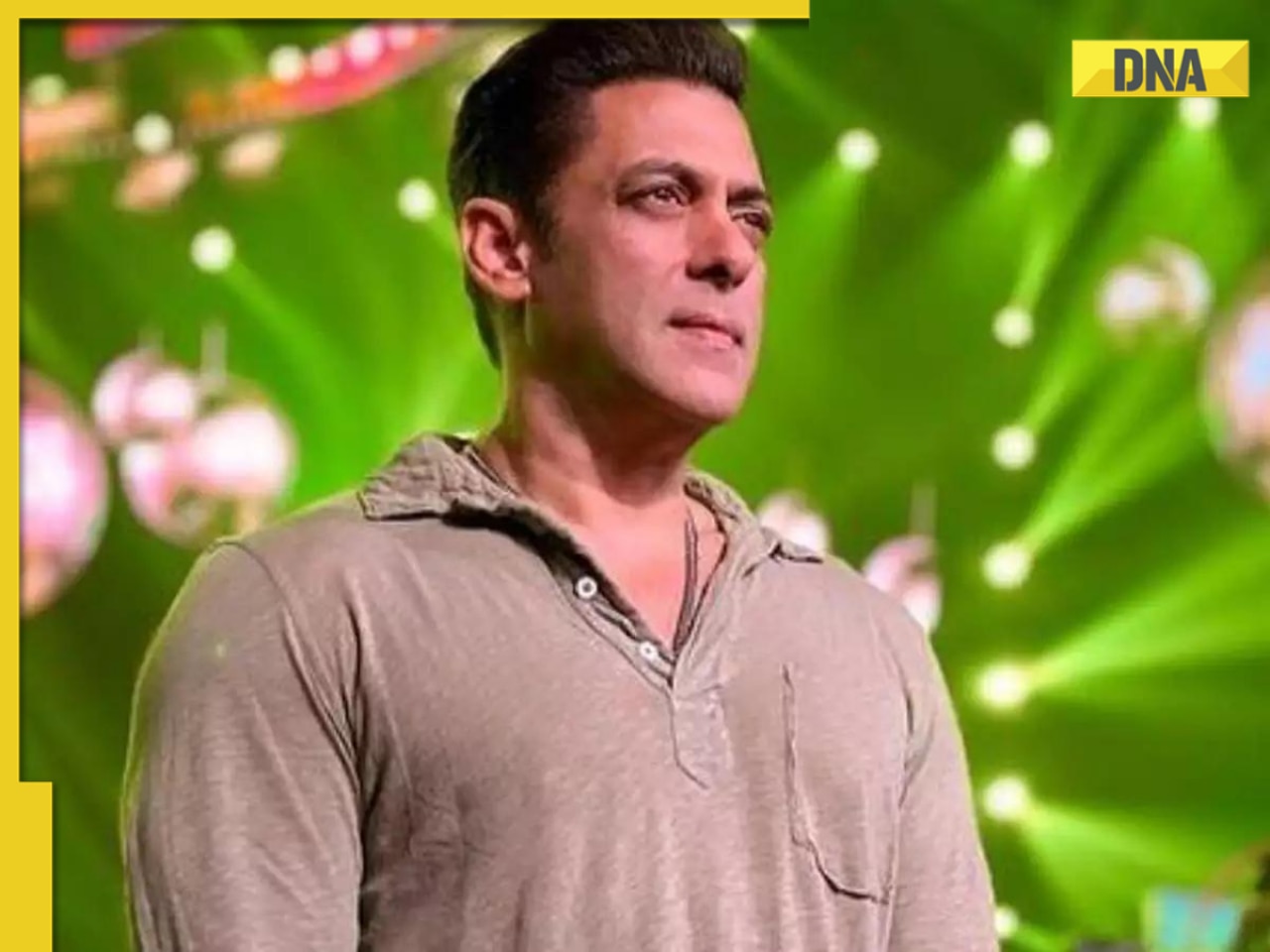
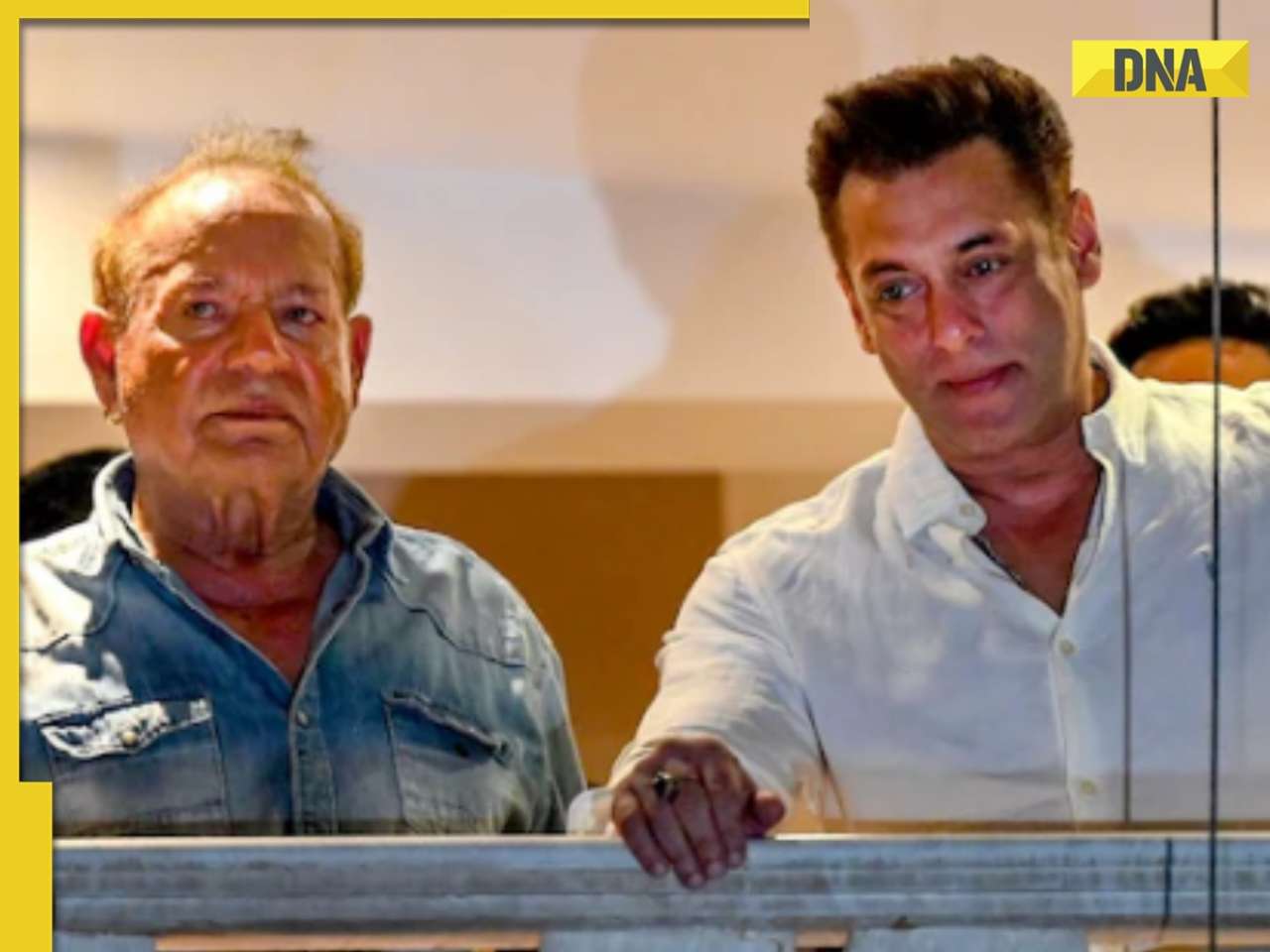
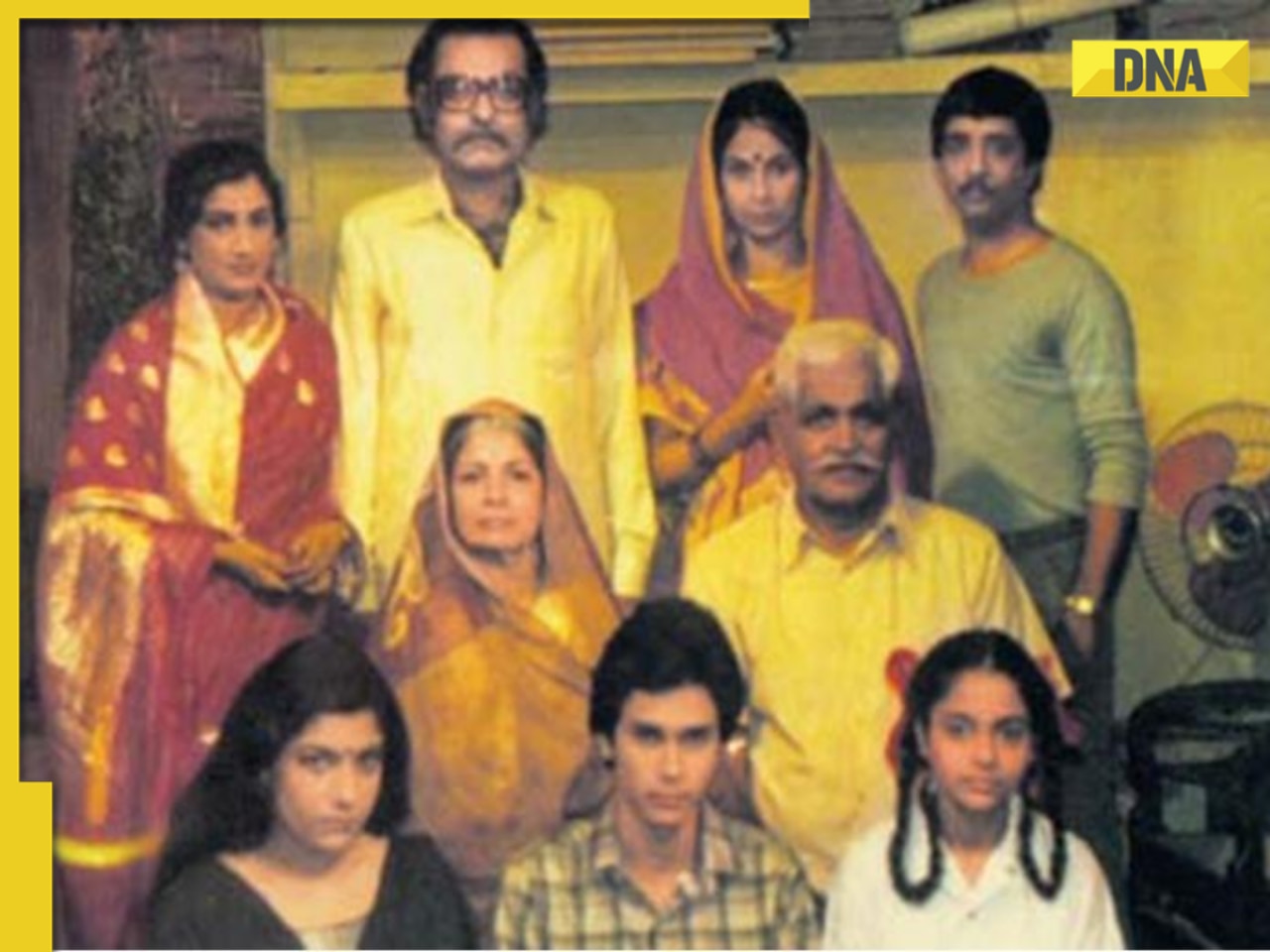
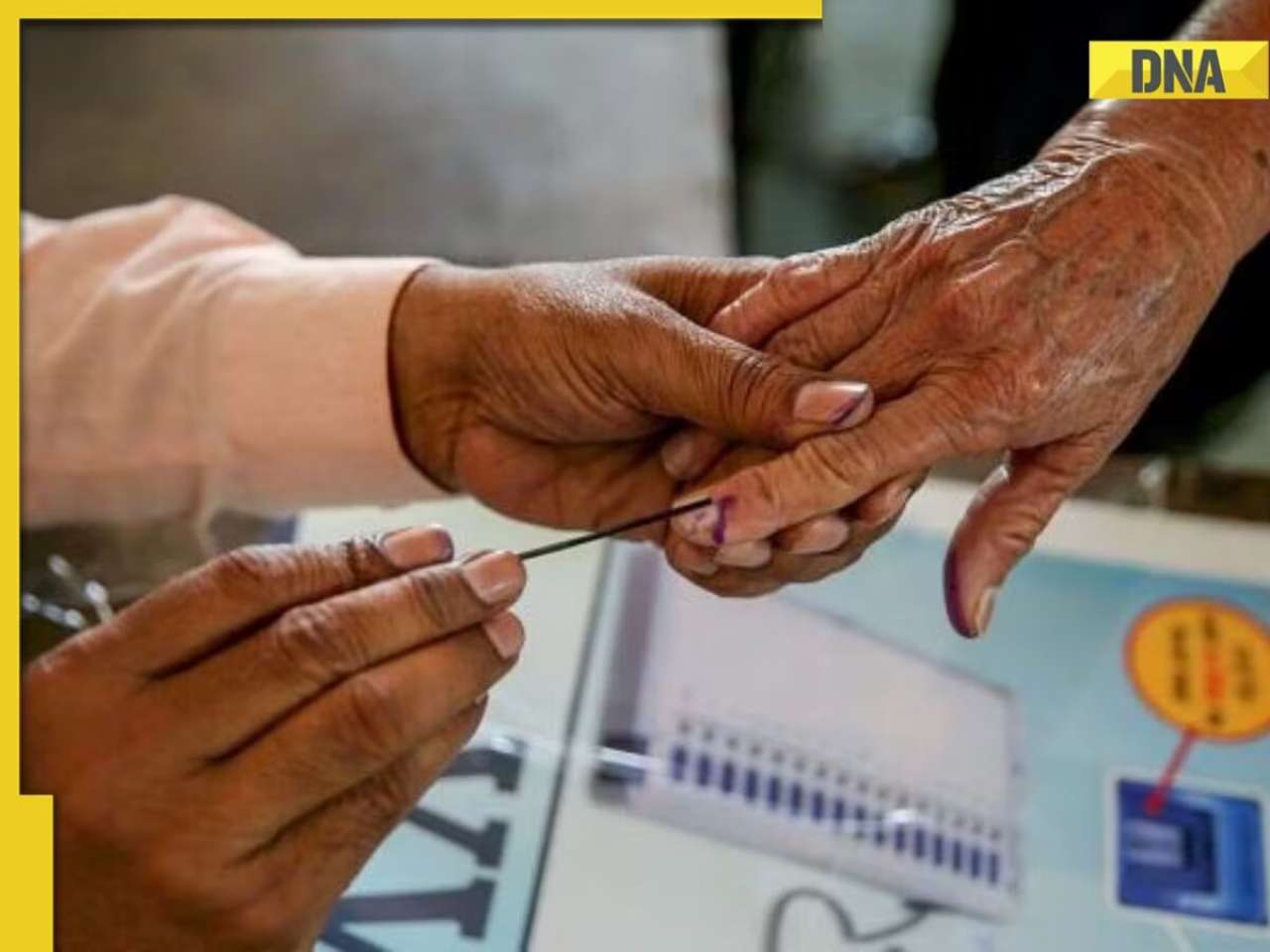
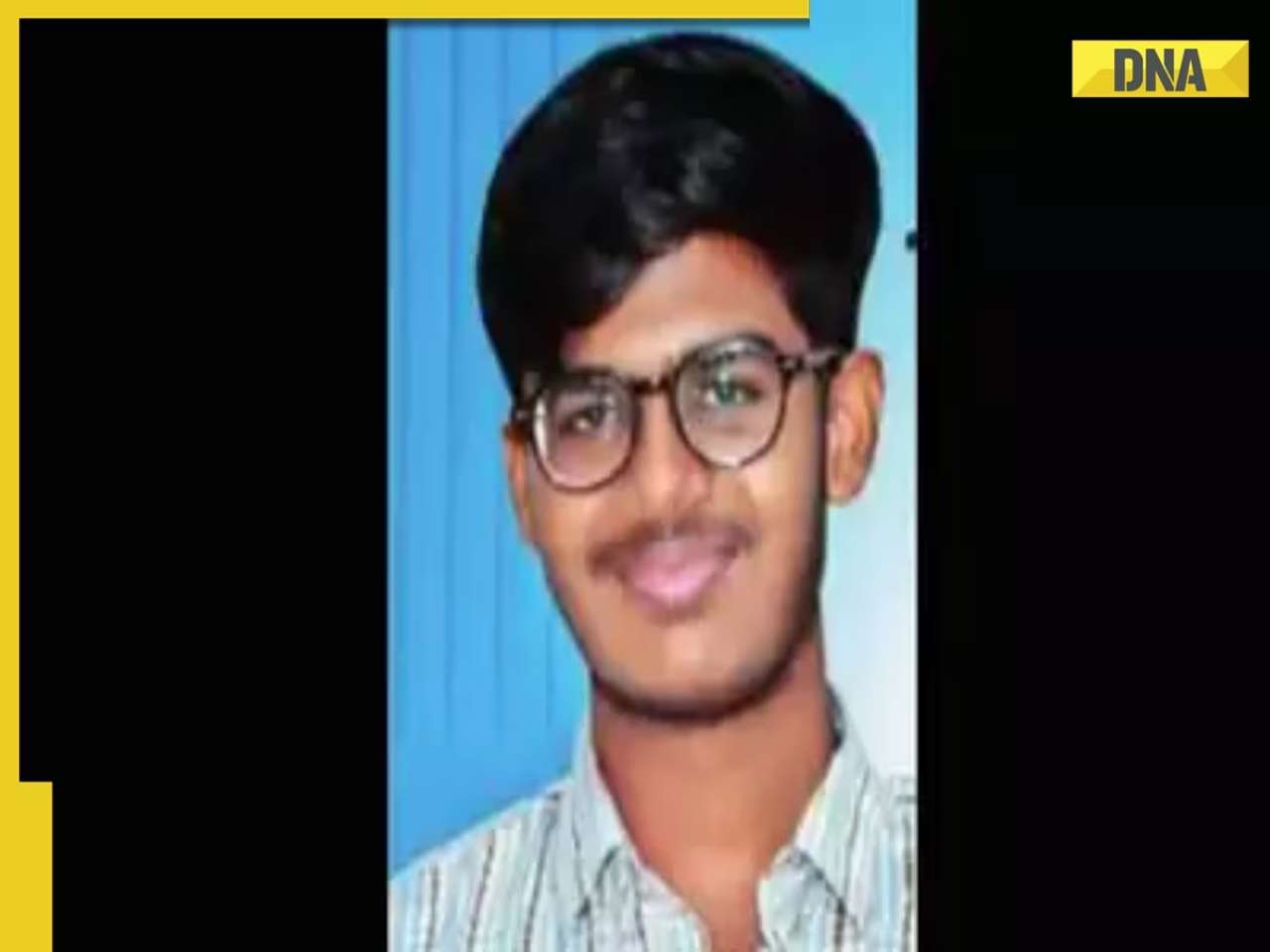




















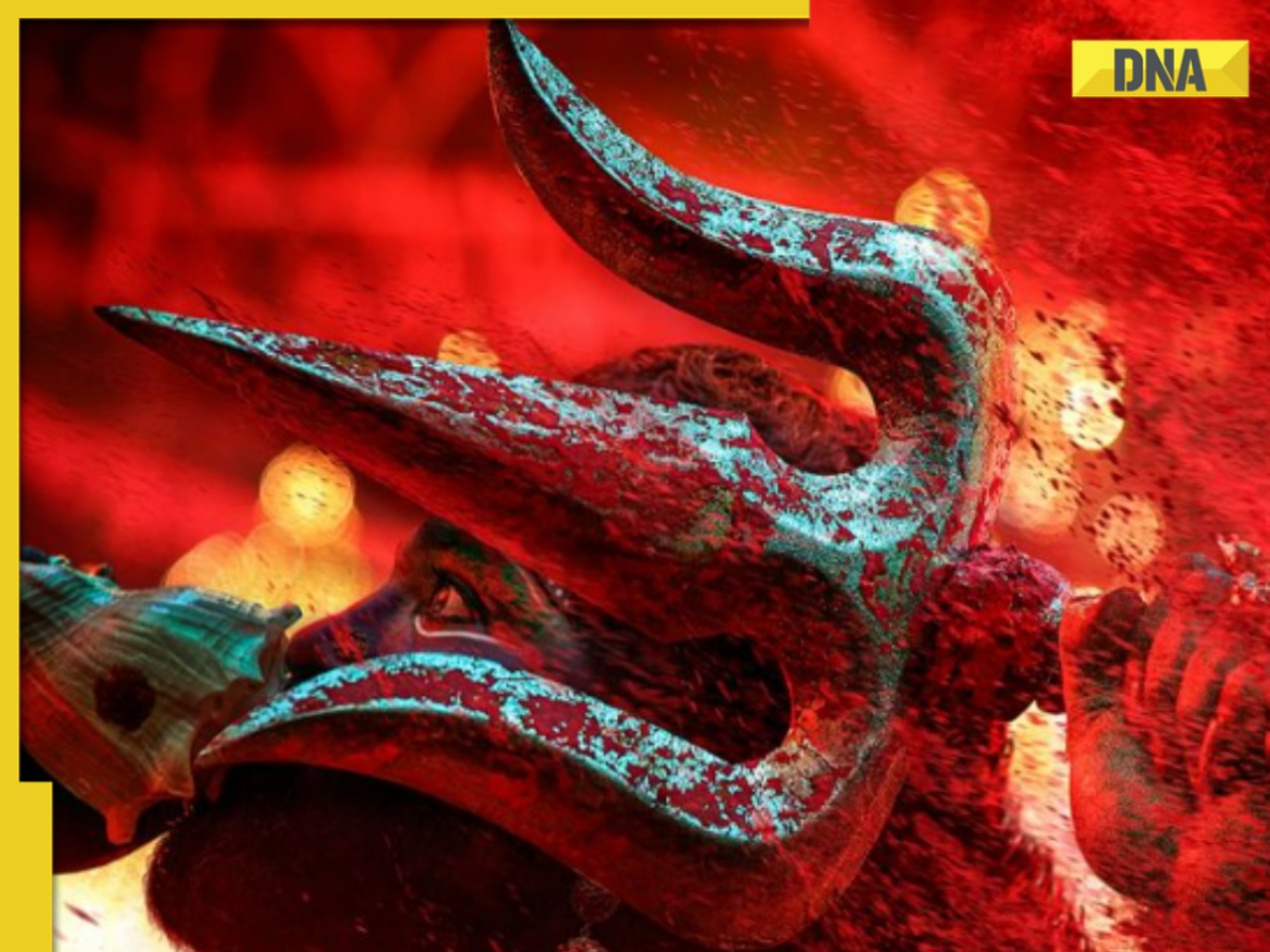
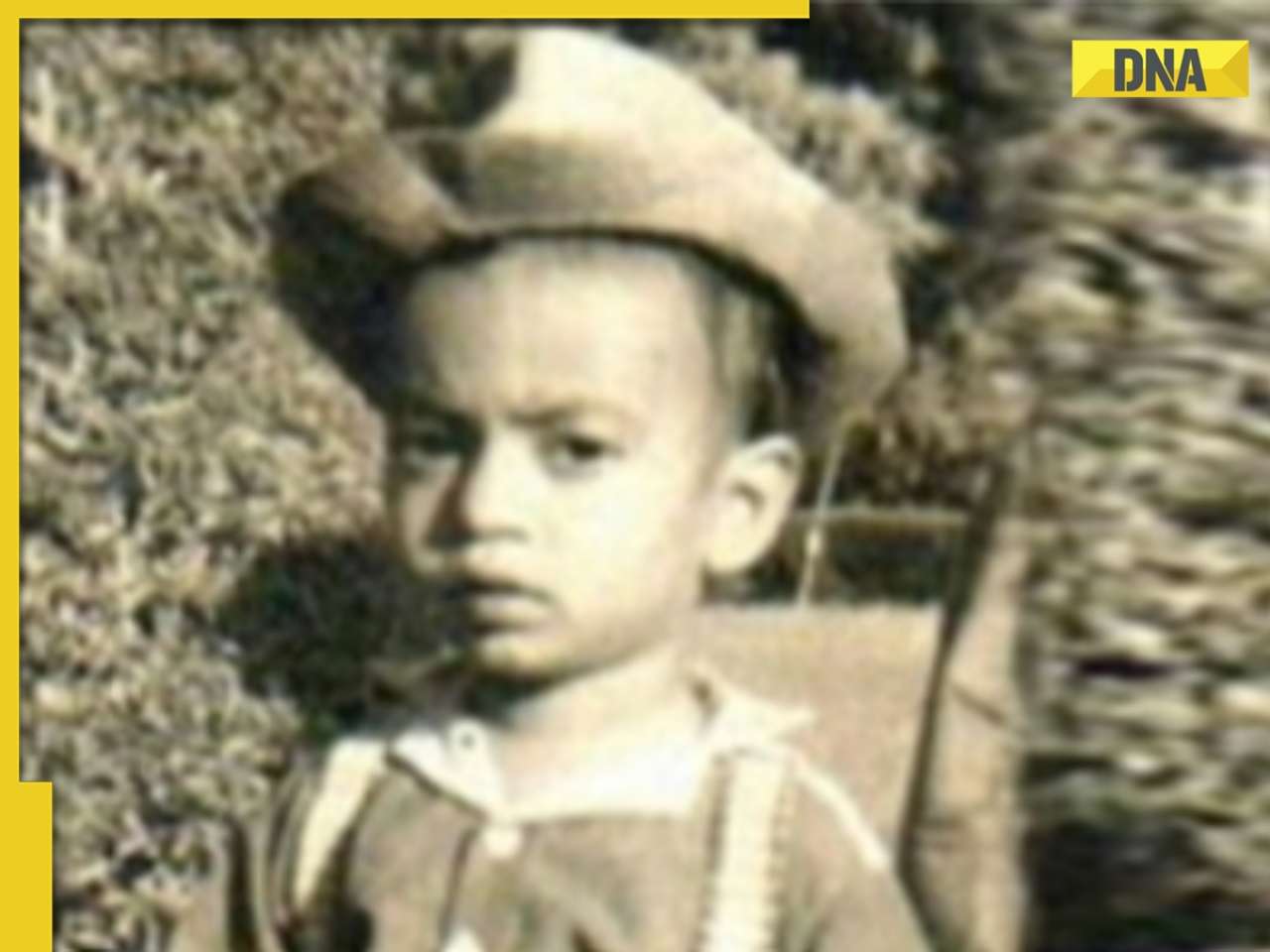


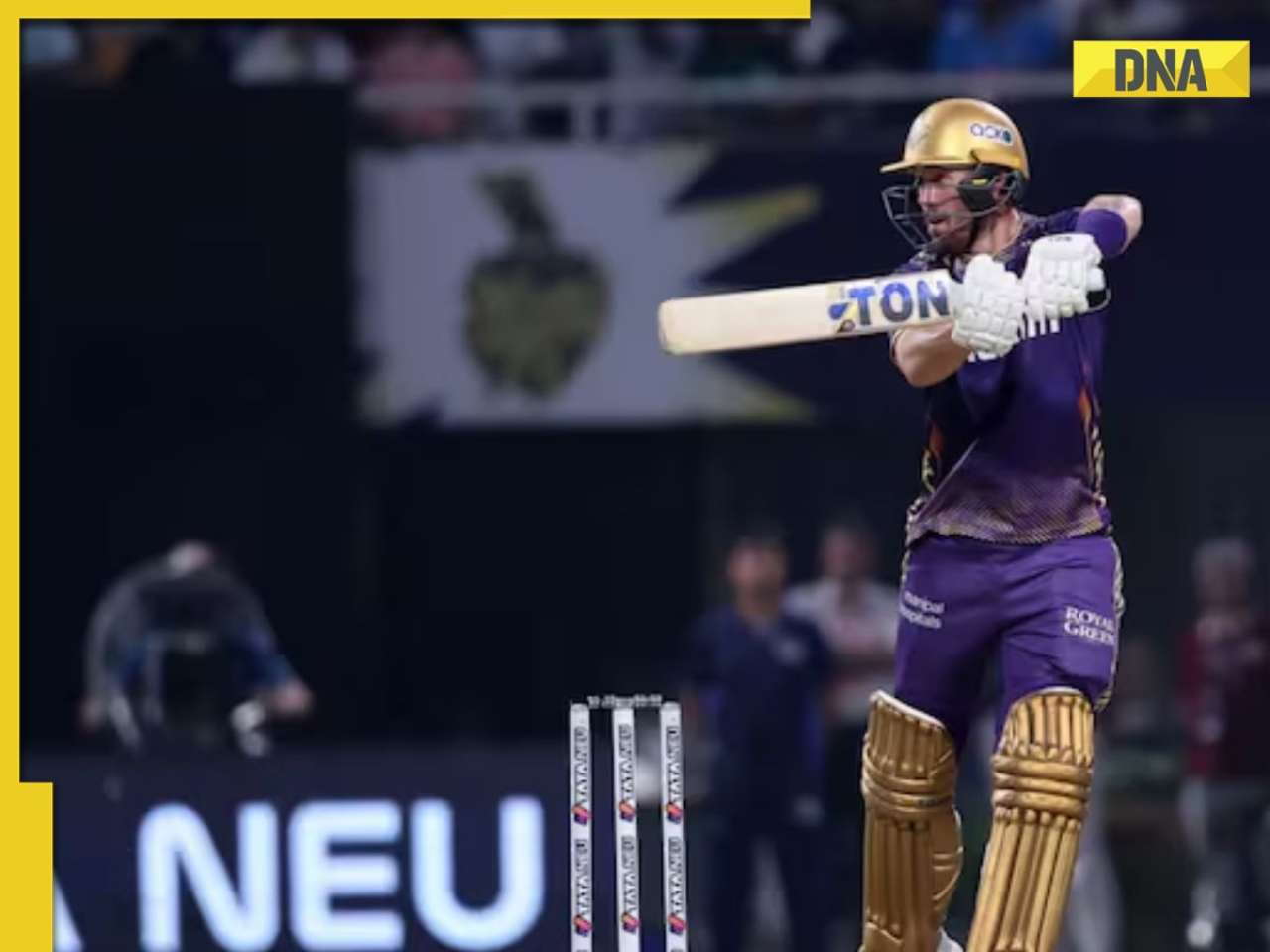













)
)
)
)
)
)